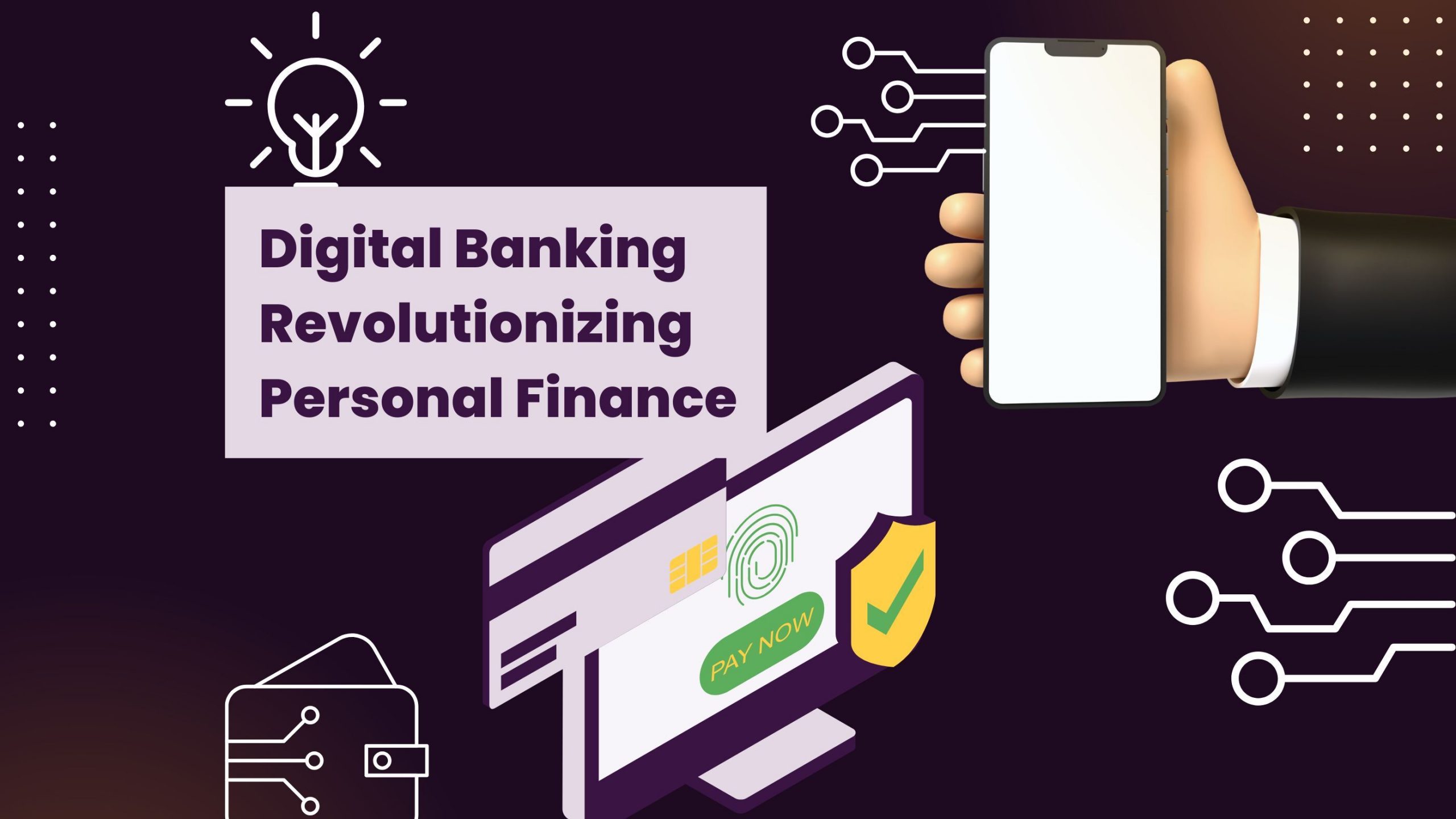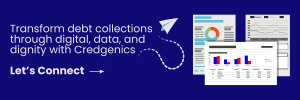Personal finance has undergone a major shift and expanded exponentially. This growth has been fueled by the country’s vast aspiring population, increasing digital adoption, and cutting-edge technology innovations. As more customers shift to digital banking, technology transformation will likely remain the key driver of growth in this segment. By leveraging digital technology, banks are revolutionizing personal finance as they can process transactions at lightning speed, significantly reduce operational costs, and offer personalized services tailored to individual customer needs.
At its core, digital banking harnesses the power of technology to optimize and streamline traditional banking processes. With digital, customers can access and manage their financial activities anytime, anywhere, using their smartphones or computers. This paradigm shift has improved the customer experience and propelled operational efficiency for financial institutions.
According to a Deloitte report, digital banking has gained significant momentum in India. India’s largest public sector bank opened 64% of its savings accounts digitally, amounting to 78.6 lakh new accounts. Furthermore, the number of loans sanctioned through digital channels saw a 15% growth, reaching 13.39 lakh in the financial year 2022-23. Simultaneously, a leading private-sector bank received 94% of its new loan applications digitally during the same period.
The Rise of Digital Banking
The rise of digital banking represents a major transition, empowering individuals with unparalleled convenience, transparency, and personalized financial experiences.Emerging from the growing demand for more efficient and accessible financial services, online banking first introduced the ability to check account balances and view transaction history from the comfort of one’s home. However, as technology advanced and the internet became ubiquitous, online banking transformed into a comprehensive platform offering an array of services.
This was fueled by a multitude of drivers, including shifting consumer preferences, technological advancements, and increased demand for transparency. Furthermore, user-friendly interfaces, automation tools, and secure online platforms have made digital banking more accessible and appealing to a broader audience.
How Digital Banking is Redefining Personal Finance

Digital banking is revolutionizing personal finance by putting customer experience at the forefront. Digital-first banks and fintechs have reimagined the banking experience by prioritizing user-friendly interfaces, lightning-fast transactions, and round-the-clock accessibility. By leveraging the power of data and technology, these financial institutions provide personalized recommendations and insights for action. This approach enhances the overall banking experience and makes financial management more intuitive and effective for individuals.
The benefits of digital banking extend far beyond mere convenience. With mobile apps and 24/7 online platforms, users can:
- Check account balances and transaction history on the go
- Seamlessly transfer funds and pay bills
- Apply for loans and explore investment opportunities
- Leverage personal finance tools for budgeting and expense tracking
Moreover, digital banks prioritize transparency, offering clearer fee structures and real-time updates, addressing a long-standing pain point of traditional banking. The impact of digital banking is far-reaching:
- Increased convenience and accessibility through 24/7 access
- Automation tools for streamlining financial management
- Personalized financial insights for informed decision-making
- Democratization of finance, fostering inclusivity and access
- Integration with financial management tools for financial well-being
In essence, digital banking not only enhances convenience and personalization for users but also redefines personal finance through a customer-centric approach, technological innovations, and an inclusive ethos.
Recommended Read: Secured vs Unsecured Loans
Paving the Way for Greater Financial Inclusion
One of the most important impacts of digital banking is its role in promoting financial inclusion. By eliminating the need for physical branches and reducing paperwork, digital banks make banking services accessible to individuals who might otherwise be excluded due to lack of convenient access. This includes people living in remote areas, those with mobility challenges, and those previously unable to engage with traditional banking services. By offering essential banking tools and resources via mobile devices or internet connectivity, digital banks empower these individuals to access financial services and participate in the modern economy.
Key Challenges and Considerations for Digital Banking
While digital banking offers numerous advantages in revolutionizing personal finance and promoting financial inclusion, it’s essential to acknowledge and address potential challenges and considerations:
Security and Privacy: Digital banking relies heavily on online transactions and storing sensitive financial information. Therefore, banks and other financial institutions must implement robust cybersecurity measures, data encryption, and privacy protocols to safeguard against cyber threats and protect customers’ sensitive financial information.
Dependence on Technology: The smooth functioning of digital banking services depends on the reliability and stability of technologies, including internet connectivity, mobile networks, and banking systems. These institutions must ensure service reliability and business continuity by minimizing technological disruptions that could impact customers’ ability to access accounts and conduct transactions.
Digital Divide: Despite the widespread adoption of digital technologies, a significant portion of the population may still face barriers to accessing digital banking services. Addressing the digital divide through initiatives like digital education, infrastructure development, and affordable internet access is crucial to ensuring that the benefits of digital banking are inclusive and accessible to all segments of society.
Related Read: The Role of Big Data Analytics in Personalized Banking Services
Emerging Technologies Reshaping the Digital Banking Landscape
The emergence of new technologies such as Artificial Intelligence (AI), Machine Learning (ML), 5G, and the Internet of Things (IoT) is transforming the way we access banking services. Banks must embrace these innovations to stay ahead of the curve. Digital technologies have empowered financial institutions to offer tailored services to customers, leveraging data analytics and sophisticated machine learning algorithms. Moreover, these advancements have strengthened security measures through biometric authentication and real-time monitoring.
Here are some of the emerging technologies set to redefine the future of banking:
- 5G Revolution: 5G technology enables faster mobile banking with higher speeds, lower latency, and better coverage. It allows instant transactions and seamless financial data streaming.
- Artificial Intelligence (AI): AI is already being used for fraud detection, risk management, and customer service in banking. AI-powered chatbots and virtual assistants also provide personalized financial guidance and recommendations.
- Internet of Things (IoT) Integration: As IoT devices like smartwatches and home automation systems become more common, banks can use the data generated to offer personalized financial advice and tailored products aligning with customers’ lifestyles.
- Big Data Analytics: Banks can leverage data analytics to gain valuable insights into customer behavior, preferences, and trends. This approach enables them to make data-driven decisions, optimize operations, and deliver better services tailored to individual customer needs.
- Blockchain Transformation: Blockchain technology offers a secure, transparent, and decentralized platform for transactions, streamlining financial operations. It can also enhance identity verification and fraud prevention measures.
As banks responsibly harness the power of these cutting-edge technologies, they can unlock the full potential of online banking. This transformation will not only bridge the gap between individuals and financial services but also empower customers to take control of their finances with ease and security.
FAQs:
1. What is the digital banking revolution?
The digital banking revolution refers to the rise of online platforms, mobile apps, and digital tools that make banking more accessible, convenient, and personalized.
2. What should I know about personal finance?
Key aspects of personal finance include understanding your spending habits, setting financial goals, and leveraging tools for budgeting, expense tracking, and automated savings.
3. What are the benefits of online banking?
Online banking benefits include 24/7 access, bill pay automation, transaction tracking for better budgeting, and personalized financial insights.
4. How do big data and analytics impact personal finance?
Big data and analytics enable intelligent financial insights, helping individuals understand their spending patterns and make informed money management decisions.
5. How is AI and machine learning used in banking?
AI and machine learning (ML) are transforming banking operations. They power fraud detection systems that analyze transaction patterns to identify suspicious activity. Conversational AI chatbots provide 24/7 customer service. For lending, AI models assess creditworthiness by analyzing data like income, employment history, and past repayments. AI also helps in collections by analyzing customer data to tailor outreach strategies and negotiate payback terms based on each customer’s financial circumstances. Moreover, AI-driven robo-advisors provide automated, personalized investment advice aligned with individual risk profiles. As digital banking accelerates, AI/ML will play an increasingly vital role in ensuring seamless, secure, and personalized banking experiences.






